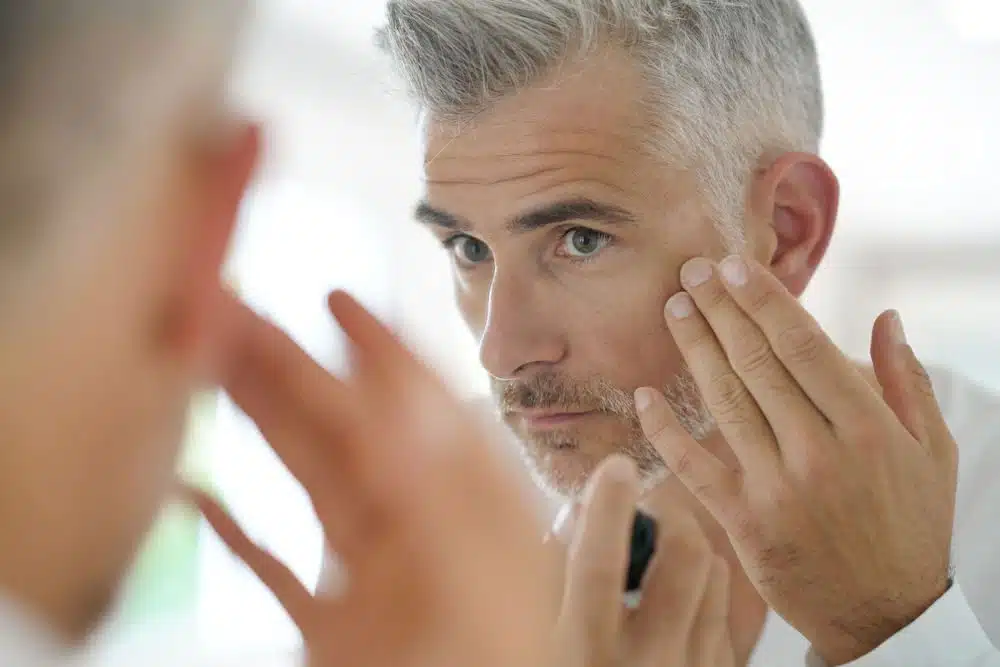There are many forms of substance abuse; some of them involve Fentanyl abuse. Fentanyl is a dangerous substance; there’s no doubt about it. No matter how a person decides to use it, it can have a detrimental impact on their health. Sometimes, people don’t even realize they’ve taken it; it can be laced with another substance without their knowledge. That being said, there are many ways Fentanyl can be consumed, but can it be absorbed through the skin? Fentanyl addiction treatment in Colorado is available to help.
What is Fentanyl?
Fentanyl is a powerful synthetic opioid that is similar to morphine but is 50 to 100 times more potent. It is a prescription drug that is also made and used illegally. In contrast to this particular form of abuse, Fentanyl is used legally as a painkiller for severe pain. Oftentimes it is used with advanced cancer patients. However, the illegal use of Fentanyl has dramatically increased in recent years, leading to many overdose deaths. This is due in large part to its high potency and the fact that it is often mixed with other drugs unknowingly.
Fentanyl is typically found in pill form, but can also be made into a white powder or an odorless liquid. Depending on the dosage and method of administration, Fentanyl can have effects that range from pain relief to intense euphoria. It is most often taken intravenously or smoked. The drug has a very short half-life, so its effects wear off quickly. This can lead to users taking more of the drug in a short time. This increases the risk of addiction as well as overdose.
What are the Different Forms of Fentanyl?
Primarily a potent synthetic opioid, Fentanyl is notable for its versatility and comes in various forms. Medical-grade Fentanyl is typically available in the forms of injections, transdermal patches, and lozenges. On the streets, it is often found in powder form, on blotter paper, mixed with or substituted for heroin, or as tablets that mimic other, less potent opioids. It’s also been found in a novel form known as ‘Fentanyl citrate lollipops,’ which are intended for managing breakthrough pain in patients who are already receiving opioid medication for underlying chronic pain. Please note that misuse of any form of Fentanyl can lead to addiction, overdose, or death.
Why is Fentanyl Dangerous?
Fentanyl is extremely potent and poses significant risks due to its high potential for overdose. Being that it is 50-100 times stronger than morphine, making it incredibly easy to ingest a lethal dose. Even a small amount can lead to severe respiratory depression or death. Additionally, it is frequently mixed with other drugs, often without the user’s knowledge.
This further amplifies the danger. Its highly addictive nature contributes to the ongoing opioid epidemic, causing severe health, social, and economic harm. Using Fentanyl without a prescription and the direct supervision of a healthcare professional is dangerous.
Is it Safe to Take Fentanyl if it is Prescribed to You?
Fentanyl is used in the medical field for managing severe pain under careful supervision. If prescribed by a healthcare professional, it is generally safe for use. However, due to its potency, it must be used exactly as directed to minimize the risk of potential side effects and overdose. It is crucial to have ongoing communication with your healthcare provider. It is imperative to understand the dosing instructions thoroughly, and promptly report any side effects. Always remember, misuse or unauthorized use of Fentanyl can lead to serious health risks; this includes dependency and potentially fatal overdose.
Do People Lace Drugs with Fentanyl?
Drug dealers or manufacturers lace other drugs with Fentanyl quite often. They do this because of its high potency and relatively low cost. It can significantly intensify the effects of other drugs, creating a more powerful high. However, this practice is incredibly dangerous, given Fentanyl’s potency. Despite these risks, unscrupulous dealers continue to lace drugs with Fentanyl to increase profits and create a stronger product. This often results in tragic consequences.
Fentanyl can be found in street drugs such as cocaine. Heroin rehab in Colorado can help. It is difficult for users to know if these drugs contain Fentanyl or not. If a user suspects that they may have been exposed to Fentanyl, it is important to seek medical help right away; an overdose can occur within minutes. It is also important for users to seek out safe and legal sources of opioids. This includes prescribed medications with the guidance of a healthcare provider.
What are the Risk Factors of Fentanyl?
Fentanyl poses severe health risks due to its extreme potency. This leads to a high risk of overdose, especially if a user mistakes it for a less potent opioid. Overdose can result in severe respiratory depression or death. Prolonged use can lead to physical dependence and withdrawal symptoms.
As previously mentioned, Fentanyl can be mixed with other drugs, often without the user’s knowledge, potentially leading to unintentional ingestion of the substance. Any non-medical use of Fentanyl is extremely dangerous and potentially lethal. This is why it is imperative to seek the oversight of a healthcare professional.
Users and potential users need to be aware of the hazards associated with Fentanyl. Users should be aware that any kind of non-medical use can result in severe health risks, including overdose and physical dependence. Furthermore, it is important to know that Fentanyl can potentially be mixed with other drugs, as previously mentioned. For those seeking help for a substance use disorder, it is important, to be honest with healthcare providers. With their help and guidance, an appropriate treatment plan can be made.
Are there Risks of Airborne Fentanyl Exposure?
Despite the benefits of Fentanyl as a potent pain reliever, there are significant risks associated with airborne Fentanyl exposure. In its airborne state, Fentanyl can be inhaled or absorbed through the skin, leading to unintentional ingestion. This can result in serious health effects such as respiratory distress, disorientation, and in extreme cases, overdose. Therefore, it’s critical to handle Fentanyl with extreme caution and appropriate safety measures.
What are the Risks of Fentanyl Exposure Through Touch?
Fentanyl is a potent synthetic opioid, approximately 100 times more potent than morphine and 50 times more potent than heroin. The risks associated with Fentanyl exposure, particularly through touch or skin contact, can be severe. Accidental skin absorption can lead to a variety of symptoms. These may include disorientation, coughing, sedation, respiratory distress, and in severe cases, overdose causing death. The risk increases exponentially with the purity of the drug and the length of exposure. Emergency personnel and law enforcement officers are often educated about these risks; they are provided with protective gear to prevent accidental exposure during their duties.
Can Fentanyl Be Absorbed Through the Skin?
The million-dollar question is whether or not Fentanyl can be absorbed through the skin. In short, Fentanyl can be absorbed through the skin. This method of administration is commonly used in medical settings, often via transdermal patches; it is important to note that this method is for the long-term management of severe chronic pain.
The ability of Fentanyl to be absorbed dermally also presents significant risks. This is especially true in the context of accidental contact or misuse. It’s important to handle Fentanyl with care, using appropriate protective measures, to avoid unintentional exposure and potential opioid toxicity.
What are the Symptoms of a Fentanyl Overdose?
A fentanyl overdose is a medical emergency that requires immediate attention. Symptoms can include extreme sleepiness, slow or troubled breathing, difficulty walking or talking, unconsciousness or coma, and small, pinpoint pupils. These symptoms are often accompanied by cold, clammy skin, and blue or purple coloration of the lips or fingernails. If any of these symptoms are observed, it is crucial to seek medical help immediately.
What Should You Do if You’re Exposed to Fentanyl?
If exposed to fentanyl, it’s crucial to take immediate action. Don’t touch or disturb the substance; it’s extremely potent and can be absorbed through the skin or inhaled. If you suspect you’ve been exposed, move away from the area to prevent further exposure; wash your skin with plenty of soap and water immediately but avoid scrubbing harshly as it can increase absorption.
Do not use hand sanitizers or bleach solutions which can enhance the drug’s ability to penetrate the skin. Seek immediate medical attention and inform the hospital staff of the potential exposure to fentanyl. Time is of the essence in these situations, as the drug can rapidly lead to respiratory distress and unconsciousness.
What Should You Do if You Encounter Someone Who is Overdosing on Fentanyl?

If no improvement is observed after 2-3 minutes, apply a second dose. Lastly, perform rescue breathing or CPR as necessary until medical professionals arrive. Remember, never leave the person alone as Fentanyl overdoses can be fatal. This information is not a substitute for professional medical advice; always consult with a healthcare provider for guidance tailored to your specific circumstances.
Receive Fentanyl Addiction Treatment at Jaywalker
Help is available for those struggling with Fentanyl addiction at Jaywalker. If you or a loved one are interested in finding out more about what we offer, you can contact us here.







